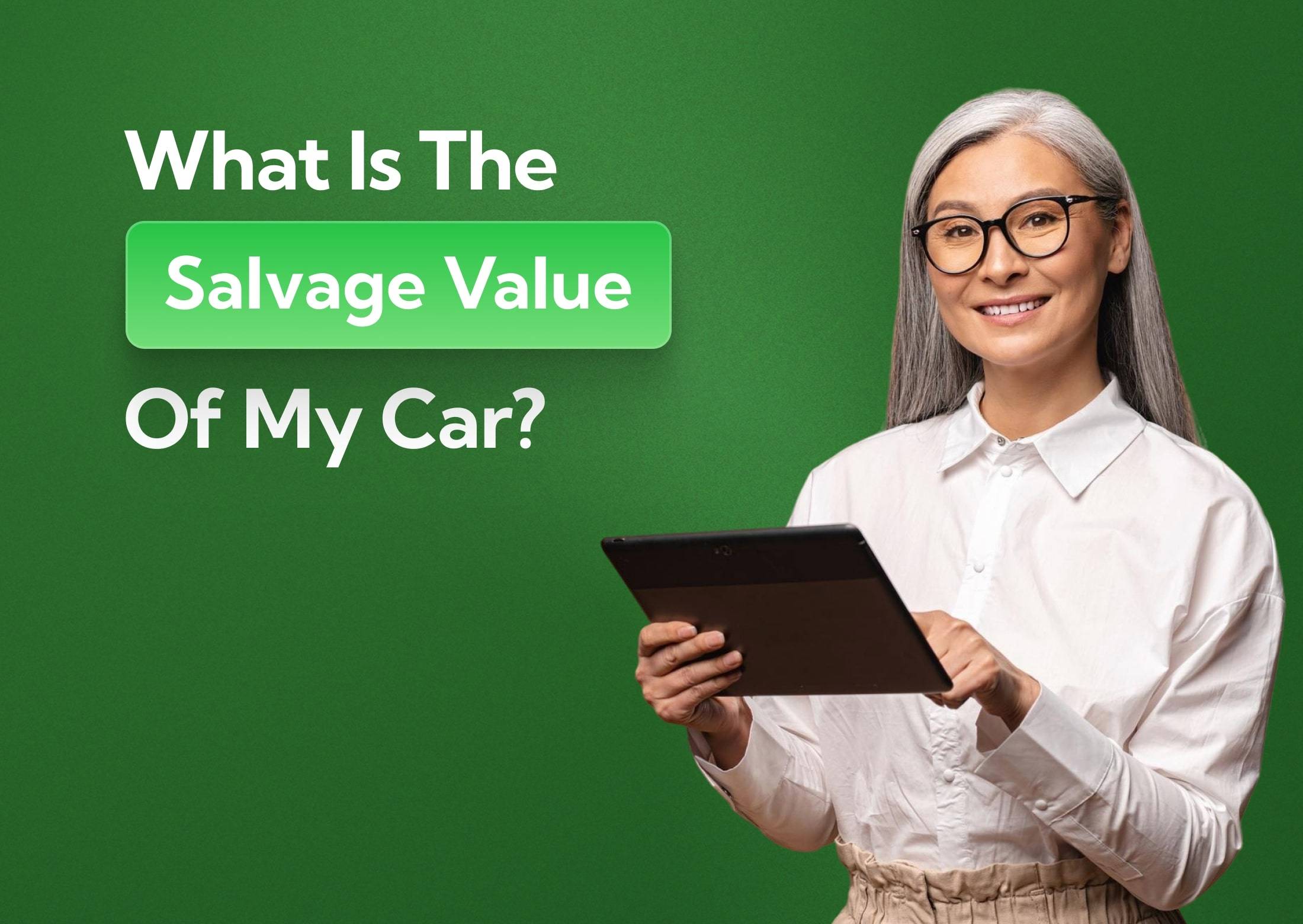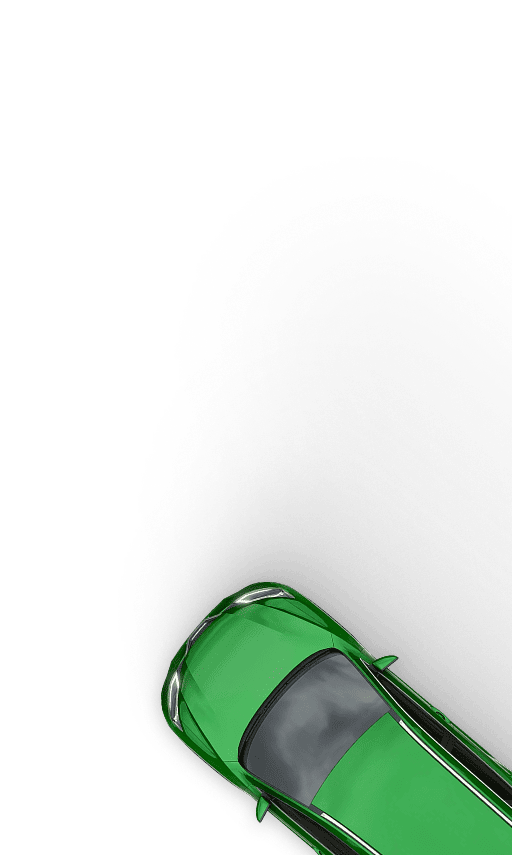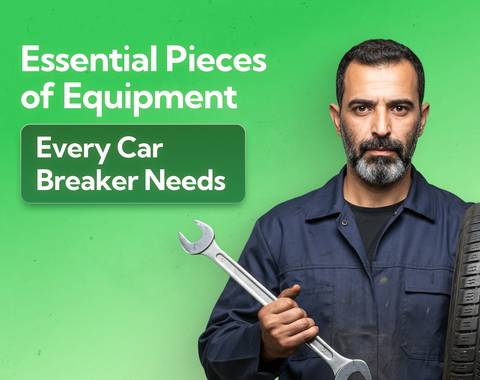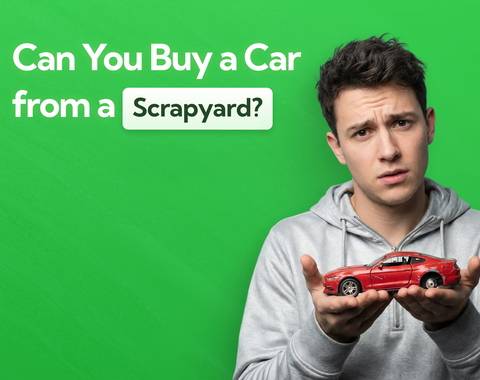What is the Salvage Value of my Car? Expert Insights
Learn how to assess the value of a salvage car, understand what affects its resale price, and explore your options for selling it.
Last updated: 14th October, 2025

Anthony Sharkey is COO at New Reg Limited (Car.co.uk, Trader.co.uk, Garage.co.uk), driving innovation in vehicle recycling, logistics, and customer experience.

Listen to this story
When a car has a salvage title on it, you might think it's completely worthless. While its value will be significantly lower, this couldn't be further from the truth. In this guide, we'll walk you through how to value a salvage car, factors that affect it, and what your options are for selling it.
If you own a car that has been declared a total loss by an insurance company, it will typically be given a salvage title. This means that the car has been damaged to such an extent that it would cost more to repair than its actual value.
However, this doesn't necessarily mean that the car is completely worthless. While most people think the only option beyond this point is to scrap your car, there are plenty of options for selling a salvage car and getting some cash out of it.
But the option that works best for you depends on its total value. And that depends on several factors. Let's dive in.
What's in this article
- 1. What is "salvage value"?
- 2. Salvage value vs. market value
- 3. How do I calculate the salvage value of my car?
- 4. Factors that affect your car's salvage value
What is "salvage value"?
When a car has a salvage title, its salvage value is the estimated amount of money it would fetch if it were to be sold for parts or scrap metal. It is most often calculated by taking into account the current market prices for scrap metal, as well as the demand for parts from that particular make and model of car.
Your insurance company will generally write off the car and give it a salvage title when it's deemed a "total loss" — that is, they've decided that the cost to repair it is higher than the cost of replacing it.
Salvage value vs. market value
A car's salvage value is typically around 75% lower than its market value. This is because it takes into account the cost of repairs and any potential damage that may have been caused. Additionally, insurance companies will often deduct a certain percentage from the car's salvage value for administrative fees and other costs.
- Salvage vehicles are often not in good condition and may require expensive repairs to make them roadworthy again.
- The parts of a salvage car may have been damaged, making them less valuable.
- There is a much smaller market for salvage cars compared to used cars in good condition, leading to lower demand and prices.
- By default, salvage cars are deemed unroadworthy, so it's an uphill battle to get them back on the road.
- Even if they're in perfect condition, they're more difficult to insure (and some insurers won't even provide coverage for them).
All these factors add up to one simple reality: salvage cars are worth less than regular vehicles, and it's not easy to find a buyer for the same.
How do I calculate the salvage value of my car?
To calculate the salvage value of your car in the UK, you can follow these general steps:
- Assess the car's damage. The extent of damage to your car significantly influences its salvage value. The more extensive the damage, the lower the salvage value tends to be.
- Check the insurance category. In the UK, insurance companies categorize damaged vehicles into different salvage categories (A, B, S, N), which indicate the severity of damage and the car's potential for repair. For example, Category A cars are only fit for scrap, while Categories S and N can be repaired and returned to the road.
- Estimate the pre-accident value (PAV). This is the value of your car before it was damaged. You can find it by checking used car listings for similar models in similar conditions or using a free car valuation tool.
- Determine the percentage of depreciation. Salvage value is typically a percentage of the PAV. The percentage can vary depending on the damage and the salvage category. For instance, a Category S car might retain up to 60% of its PAV, whereas a Category B car might be much lower.
- Calculate the salvage value. Multiply the PAV by the depreciation percentage (or retention rate) specific to your car’s category of damage. For example, if your car’s PAV is £10,000 and it falls into a category with a 40% retention rate, the salvage value would be £4,000.
If you're dealing with an insurance claim, your insurer will typically provide the salvage valuation as part of the claim process. However, it's also a good idea to consult with a professional valuator to get a more specific and accurate assessment.
Factors that affect your car's salvage value
Salvage category
In the UK, the rates for determining the salvage value of a car are not strictly standardized across all insurance companies, but there are general guidelines provided by the Salvage Code.
These guidelines dictate the categorization of damaged vehicles but do not specify exact percentages for depreciation or retention rates for each category.
Here’s a brief overview of the categories:
Category A (Scrap)
The vehicle is severely damaged and legally must be completely scrapped. None of their parts are allowed to be salvaged, and the entire car, including components that might normally be reusable, must be destroyed. This category is for cars that are beyond any use except for scrap metal.
Category B (Break)
While the main body (shell) of Category B vehicles must legally be scrapped, some parts of the car can be salvaged and reused in other vehicles. This category involves significant structural damage, yet allows for the recovery of mechanical and other components.
Category S (Structurally damaged repairable)
Previously known as Category C, these vehicles have sustained structural damage that is repairable. Owners can opt to repair a Category S vehicle before it goes back on the road, though it will involve professional assessment and restoration of its structural integrity.
Category N (Non-structurally damaged repairable)
Formerly known as Category D, these vehicles have not sustained damage to their structural frame but may have other forms of damage that can be pricey to repair, such as electrical or mechanical issues.
Category U (Unrecorded)
This category is for vehicles that have sustained damage but the damage has not been officially recorded by an insurance company. These vehicles may have hidden problems, and buyers should exercise caution, ensuring a thorough check is done to uncover any possible issues.
Category X (No structural damage)
Vehicles in Category X have minimal or no damage. It’s rare and mostly applies to vehicles that were stolen and recovered without damage. These vehicles are the best choice for buyers looking for damaged cars as they often require the least amount of repair work to get back on the road.
As a rule of thumb, Cat A and B cars have the lowest value. Cat S and N cars are worth more, but the costs of getting them roadworthy will almost always be greater than their salvage value. Cat U vehicles can go either way, depending on the circumstances. Cat X write-offs are the best candidates for sale and fetch the highest value.
Car age
Cars depreciate rapidly, especially in the first few years after purchase. Typically, a new car loses about 20% to 30% of its value in the first year and around 15% each year thereafter. Since the salvage value is a percentage of the pre-accident value, newer cars tend to have a higher salvage value.
Older cars also generally have higher mileage and more wear and tear, which can significantly decrease their value. In the context of salvage, this means that even if an older car can be repaired, the cost of such repairs might not be justifiable against the vehicle’s diminished value.
Car make and model
Some car models, especially those from popular and widely used brands, tend to retain higher salvage values. This is due to the demand for their parts in the repair market. Makes and models whose parts are in high demand will generally have a higher salvage value.
Cars known for their durability and reliability will also enjoy higher salvage values, as they are more likely to be repaired and returned to service.
The type of the vehicle also plays a crucial role. For example, SUVs and trucks, which are typically more expensive, have higher salvage values compared to compact cars due to their higher initial market values.
What the experts say

Steven Jackson OBE
Pre-accident condition
As mentioned above, the salvage value is typically a percentage of the pre-accident value. The better condition your car was in before the accident, the higher its PAV. By extension, its salvage value will be higher.
Working parts
The #1 reason your car is probably worth more than you think is because of the working parts inside. If you have valuable parts, like an engine, alternator, transmission or catalytic converter that are still in working condition, the salvage value will be much higher because you can resell them individually at their general resale value (or sell your car to someone who sees it as an opportunity).
Repairs
Repairing a car can potentially increase its salvage value, especially if the repairs enhance the vehicle's safety, functionality, or overall appeal.
If your repairs meet the following standards, you can expect a higher sale price for your salvage car:
- High-quality repairs using original equipment manufacturer (OEM) parts
- Repairs that address critical mechanical issues or restore key functionalities (like the engine or transmission)
- Proper documentation of repairs, including details about the parts used and the service provider
- Existing market demand for the vehicle
In some cases, repaired vehicles have to undergo additional inspections or meet certain criteria to be reclassified from a salvage title to a rebuilt status, which can legally affect their usability and resale value. This is common with Category S and N vehicles.
Modifications
When you're selling a modified car, some modifications will add value to the vehicle, while others can detract. Some modifications may also void a car's warranty or affect its insurance cover.
In general:
- Upgrades, aftermarket parts from the manufacturer or authorised dealers, and high-quality performance modifications increase a car's salvage value.
- Aesthetic changes like custom paint jobs, aftermarket rims and tires, and unique body modifications can go either way — a certain type of buyer may pay extra for them.
- Cheap aftermarket parts, non-manufacturer-approved performance upgrades, and unprofessional installations decrease its value.
- Dangerous or illegal modifications will dramatically lower its value.
Where to find buyers for your salvage car
If you want to sell your written-off vehicle, you have a few options. Let’s take a look at each of them and their pros and cons.
Salvage and scrap yards
Local salvage yards purchase damaged cars either to strip them for usable parts or to sell the metal as scrap.
This is the most straightforward way to dispose of a salvage vehicle, especially if you're looking to make a quick sale without dealing with the complexities of auctions. If you're dealing with a Category A or Category B salvage car, it's also your only option.
If you plan to scrap your car, use an online service for an online quote and free collection.
Online marketplaces
You can sell your car online on numerous sites. These include:
- Gumtree
- Facebook Marketplace
- eBay Motors
- Auto Trader
- PistonHeads
Most of these sites will let you list your car for free (or at a low cost). They all have millions of users, so they're fantastic for reaching buyers across the UK. It’s worth mentioning that the only write-offs worth selling on the second-hand market are Category X. Cat S and N cars might get you a decent resale value after fixing them up, but you'll wind up losing money because of the repairs required. Cat U vehicles sometimes fetch a decent price, but you have to be able to prove to the buyer that its situation doesn't compromise its safety, function, or value.
Direct parts buyers
If you're looking to sell your salvage car for its working parts or as a restoration project, you can also target direct buyers.
These may include:
- Mechanics or hobbyists looking for spare parts
- Car enthusiasts who specialize in restoring damaged vehicles
- Specialist garages that rebuild and restore certain types of cars
- Businesses that deal in used parts
This is normally the most profitable route, but it requires more time and effort on your part. You'll need to list all the parts separately, and find buyers for each. You may also have to handle shipping, packaging, or delivery if the buyer is not local.
Online auctions
Auction sites like IAAI and Copart specialise in selling damaged, recovered or repossessed vehicles to the trade and public, and they have a large reach.
However, selling a car at auction is more challenging for novice sellers — you'll need to familiarise yourself with the process, including how to set a minimum price and monitor bids.
Car.co.uk
No matter where you live in the UK, the most frictionless way to sell your salvage car is to use an online car buying service.
Our process is simple:
- Head to our home page.
- Input your vehicle registration number and postcode.
- Get personalised offers in 20 seconds or less.
- Choose the offer you like best.
- We'll collect your car, free of charge!
- We text you when we're ready at the pickup location. You can either schedule same-day or next-day pickup.
- You’ll be paid out for the car on the spot.
This way, you don't have to juggle a bunch of different apps and messaging platforms. And you can put money in the bank right away.
Tax implications of selling a salvage car
When you sell a salvage car in the UK, you generally do not have to pay taxes on the sale (unless you sell the vehicle for more than you originally paid for it). They’re generally exempt from Capital Gains Tax because they are considered ‘wasting assets’ due to their predictable decline in value over time.
However, if you somehow manage to sell the car for a profit, that profit will be subject to tax.
The situation differs slightly if the car is a business asset. When selling a business vehicle, the proceeds from the sale would need to be reported as part of the business’s financial activities. If sold at a loss, the loss can potentially be deducted from the business’s taxable income, which might reduce the tax liability.
Regardless, it’s wise to keep all sales documentation.
Do I need documentation to sell a salvage car?
The only three documents you need to sell your car to a scrap yard are your photo ID, proof of address and V5C logbook. You will also have to tell the DVLA you've scrapped your car. When your car has been scrapped, you will receive a Certificate of Destruction (CoD) by post.
There are multiple documents required to sell a car through other channels, though. Some of them don’t apply to you if you’re parting ways with a write-off. The ones that do are:
- V5C logbook
- Service history
- Repair receipts
- Any warranty documents
You will also need to provide accurate information about the vehicle’s condition, including any damage or defects. It’s essential to be transparent about the car’s damage so that buyers know exactly what they’re getting.
Keep in mind it is a criminal offence to sell an unroadworthy vehicle without their knowledge. When dealing in write-offs, this makes being 100% transparent even more important.
Does having a salvage title affect insurance rates?
Insurance for a car with a rebuilt (formerly salvage) title is generally more expensive than for a car with a clean title. This is because it’s harder for insurers to determine the true value and safety of a vehicle that has undergone significant repairs. This makes it a bigger risk for the insurer to take on.
Even if you can find insurance cover, it’s often challenging to secure comprehensive collision coverage on these vehicles, and if available, it may come at a higher cost. However, obtaining basic liability insurance might be easier.
Insurers sometimes also require a thorough inspection and detailed repair records before offering coverage. The availability of insurance and the specific terms vary significantly among insurance companies, so it’s crucial to compare policies and terms from multiple providers.
The bottom line
While you certainly won't get as much for your salvage vehicle as one with a clean title, parting it out can be profitable if there's high demand for parts. And, if you have a Category X car that is still in good working condition, a direct buyer may be interested.
If your vehicle needs repairs before it's fit for sale, the repairs will almost always cost more than the value you'll recoup from selling it. That's precisely why the insurance company wrote it off in the first place!
If you just want to get rid of your salvage car quickly and without any hassle, our online car buying service is the best option 99.9% of the time.
About Car.co.uk

Share on
Latest news & blogs










